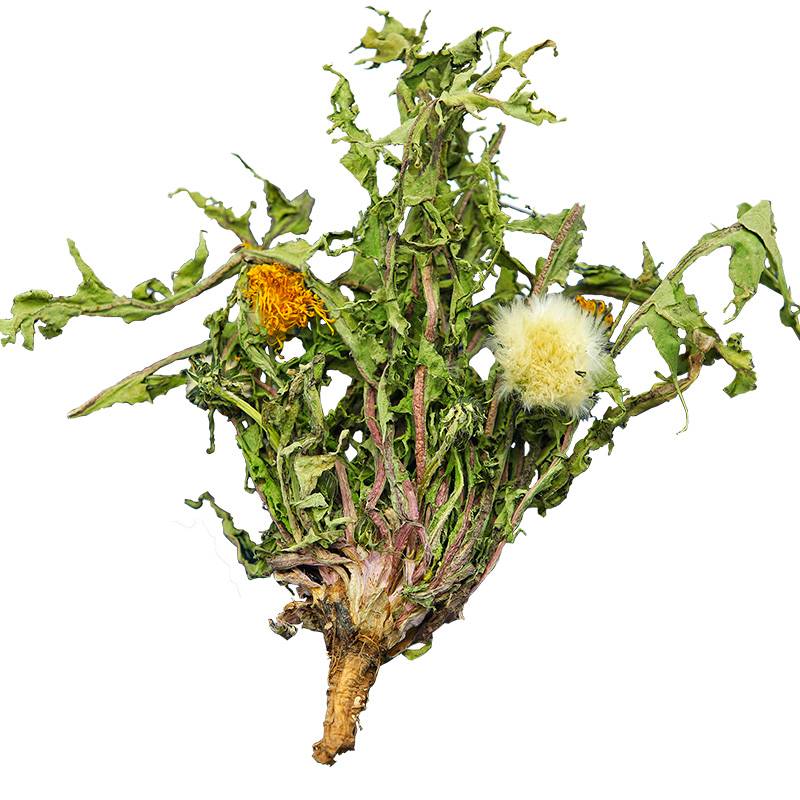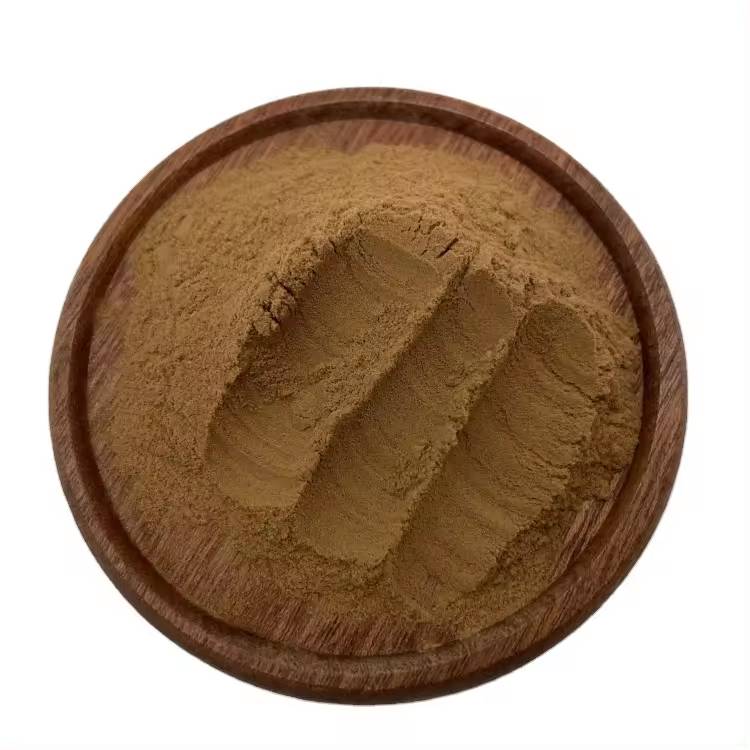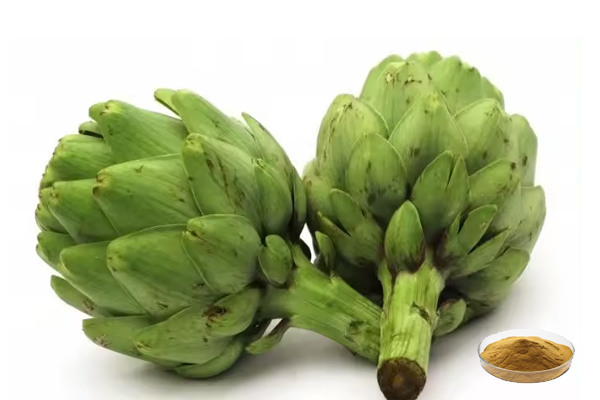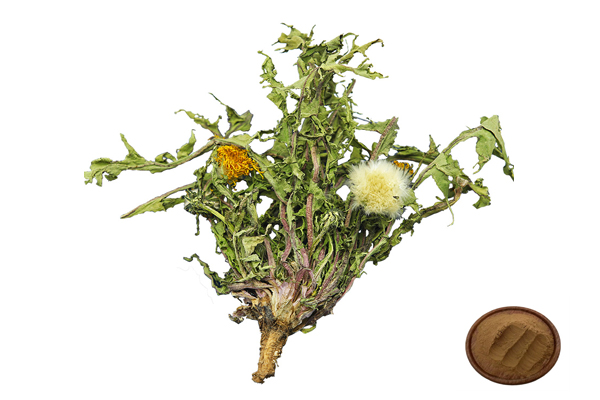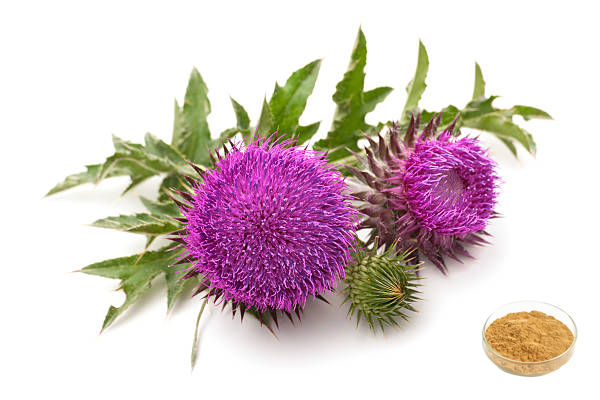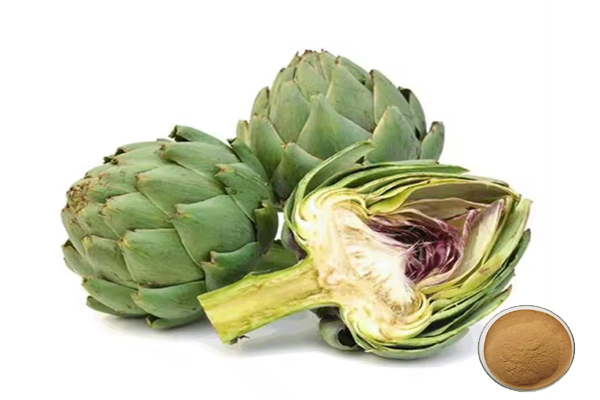Extracto de raíz de diente de león polvo 10:1
Fuente: raíz de diente de león
Nombre en latín :Taraxacum mongolicum Hand.-Mazz.
Principios activos: flavonoides, ácidos fenólicos, triterpenos, polisacáridos
Especificación :10:1
Método de prueba :TLC
Aspecto: polvo fino de color amarillo café
Residuos de plaguicidas: cumplir con la norma (CE) n º 396/2005
- descripción
- Hoja de datos
- Certificado de certificado
-
¿Qué es polvo de extracto de raíz de diente de león?
El polvo de extracto de raíz de diente de león es un polvo marrón que se obtiene mediante la extracción, purificación y secado en aerosol de las raíces secas de diente de león, diente de león alcalo varias especies del mismo género de la familia Asteraceae.
Dandelion extract contains a variety of active ingredients, especially high levels of caffeic acid and chlorogenic acid. It has broad-spectrum antibacterial, choleretic hepatoprotective, anti-endotoxin, stomachic and immune-boosting effects, and is used in the treatment of acute mastitis, lymphadenitis, and urinary tract infections.
La tecnología de primavera verde suministra polvo de extracto de raíz de diente de león 10:1 por extracción supercrítica, que obtiene un polvo activo con propiedades estables, buena fluidez y finura.
Fundada en 2000, Green Spring is a leading plant extract technology company in China. It produces according to ISO, HACCP, and other quality standards, and its products implement the highest international industry standards. With 7 certifications and 7 patents, our products are sold in more than 62 countries worldwide, and samples are available for R&D testing.
Especificaciones:
Nombre del producto
Extracto de diente de león
Nombre latino
Taraxacum mongolicum Hand.-Mazz.
fuente
Raíz de diente de león
Principios activos
Flavonoides, ácidos fenólicos, triterpenos, polisacáridos
especificación
10:1
Método de ensayo
TLC
apariencia
Polvo fino de color amarillo oscuro
Residuos de plaguicidas
Cumplir con la norma (CE) n º 396/2005
Reglamento:
Se ajusta a la normativa de la UE.
¿Busca un presupuesto?Benefits:
Lower Blood Pressure
The polysaccharides, phenolic acids (chicoric acid, chlorogenic acid), terpenes (dandelion sterols), and sesquiterpene lactones active in dandelion extract are known to lower blood sugar. Dandelion chloroform extract can be used as a hypoglycaemic agent for the treatment of type 2 diabetes mellitus by promoting glucose uptake in L6 cells. Hou Liran et al. showed that dandelion polysaccharides had a significant hypoglycaemic effect on tetracosan-induced diabetic mice. Dandelion terpineol has an antidiabetic effect and shows significant effects in reversing insulin resistance, which can be investigated as an insulin resistance reversal agent.
Protection of Cardiomyocytes
Total flavonoids from dandelion extract effectively inhibited apoptosis of cardiomyocytes in mice with viral myocarditis. Wang et al. demonstrated that dandelion sterols had a protective effect on mouse cardiomyocytes (CSC) in a model of ischemia-reperfusion-induced oxidative injury, which could be attributed to the up-regulation of the expression of protein kinase 1/2 to inhibit the oxidative injury of CSC cells caused by I/R.
Anti-inflammatory
Xiao Chiu-yung et al. showed that dandelion extracts TMP (total polysaccharide of dandelion) inhibited the mRNA expression of inflammatory factors (cyclooxygenase-2, tumor necrosis factor-alpha, interleukin-6, and interleukin-1β) in a dose-dependent manner. Wang Qian et al. demonstrated that dandelion polysaccharide has a therapeutic effect on ulcerative colitis, and further clarified that dandelion polysaccharide can inhibit inflammation and protect and repair mucosal tissues by effectively lowering the levels of interleukin-6, interleukin-6 receptor, and glycoprotein 130 (gp130).
Dandelion flavonoids, the main anti-inflammatory component of dandelion, significantly inhibited xylene-induced auricular swelling in mice, egg white-induced foot-plantar swelling in rats, and cotton ball granuloma in rats. Yang Nan et al. demonstrated that organic acids can reduce lipopolysaccharide (LPS)-induced inflammation in bronchial epithelial (NHBE) cells, a function associated with the modulation of the TLR4/IKK/NF-kappa B pathway. WANG SHASHA et al. suggested that dandelion sterols have a potential protective effect against Fuchsin complete adjuvant (FCA)-induced arthritis in rats. In addition, dandelion volatile oil at concentrations of 40 μg-mL-1 and 80 μg-mL-1 had a significant inhibitory effect on the production of nitric oxide (NO) and tumor necrosis factor-α (TNF-α). Some studies have shown that the anti-inflammatory effect of dandelion may also be related to heptaphyllum lactone.
Antibacterial
Dandelion extract has some antibacterial activity against Escherichia coli, Salmonella, and Staphylococcus aureus. The current study shows that the antibacterial effect of dandelion extract is related to flavonoids, phenolic acids, and polysaccharides. Wang Xiaoying The study showed that the total flavonoid extract of dandelion has a significant antibacterial effect on Pseudomonas aeruginosa, and the antibacterial effect is significantly enhanced with the increase in concentration.
Its bacteriostatic mechanism is: to accelerate the destruction of the integrity of the cell membrane, resulting in metal ions, proteins, and saccharides exudation, so that the cell metabolism is disrupted, and ultimately the cell death, plays a bacteriostatic effect. Dandelion polyphenols have certain antibacterial effects on Staphylococcus aureus, Bacillus subtilis, Escherichia coli, and Salmonella, and the antibacterial effects on Staphylococcus aureus and Bacillus subtilis are more obvious.
Applications:
In Cosmetics:
Dandelion extract has antimicrobial properties and is rich in vitamins A, C, E, and K, which protect the skin from free radical damage. It is also incorporated into skin care products for its anti-inflammatory properties. Scientific studies have shown that dandelion leaf and flower extracts help protect human dermal fibroblasts from UVB damage and cellular aging. Dandelion extract powder has been used in cosmetics as a natural ingredient.
For Feed Product:
The dandelion extract can reduce swelling and detoxification, help digestion, and strengthen the spleen and stomach. It enhances appetite, promotes growth, and can prevent a variety of digestive and respiratory diseases, especially porcine streptococcal disease, with remarkable efficacy, and has been used as a feed additive.
For Health Products:
Dandelion root aqueous extract can effectively inhibit the proliferation of human gastric cancer cells, dandelion roots, stems and leaves in the oligofructose have an auxiliary anti-diabetic, anti-rheumatic, anti-inflammatory, and anti-cardiogenic disorder. Dandelion extracts have been used as additives in various health products.
-
descargar
Extracto de raíz de diente de león polvo 101 COA


 inglés
inglés francés
francés español
español ruso
ruso coreano
coreano Japonés japonés
Japonés japonés



